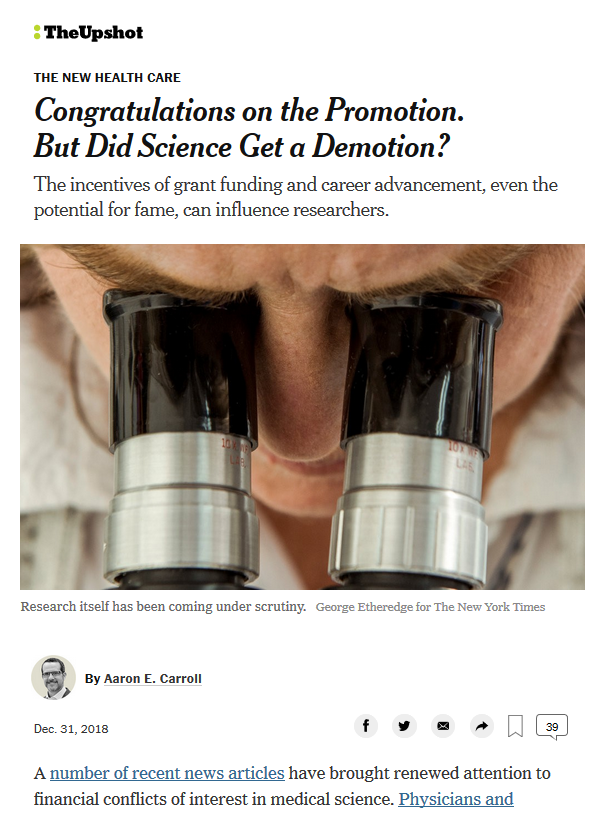I am recommending this article, not because I agree with it, but because it reinforces a common theme: the struggle to get and keep funding is skewing research as much as or more than conflicts caused by direct financial support. Like many of the previous articles on the topic, I find this article to be rife with speculation and lacking any empirical data to support the issue. I outlined similar concerns on my website back in 2005. Recently, the belief that obtaining a government grant somehow taints your credibility has led to a purge of good scientists from many EPA advisory panels.
I think this article offers bad advice and bad conclusions. But please read this article and decide for yourself.
Aaron E. Carroll. Congratulations on the Promotion. But Did Science Get a Demotion? The New York Times (The Upshot), December 31, 2018. Available in html format.

P.S. Here’s what I wrote in the comments section on this article.
I’m sorry but I can’t disagree more with Dr. Carroll’s commentary. The thesis that researchers exaggerate their findings just to get more government support for their work is an old charge and one that totally lacks any supporting data. This is in sharp contrast to the many empirical studies that show that industry supported research differs markedly and in predictable ways from non-supported research. What we have in this article is speculation, pure and simple. These speculations may seem obvious on their face, but science frequently shows us that what is obvious and what is true are often very different things. It’s worse than just idle conjecture, though. This article is red meat for conservatives who want to discredit any government supported research that exposes real environmental or occupational hazards. Shame on you, Dr. Carroll. The next time that you talk about conflicts of interest, do what any good scientist does. Bring some data to back up your suppositions.